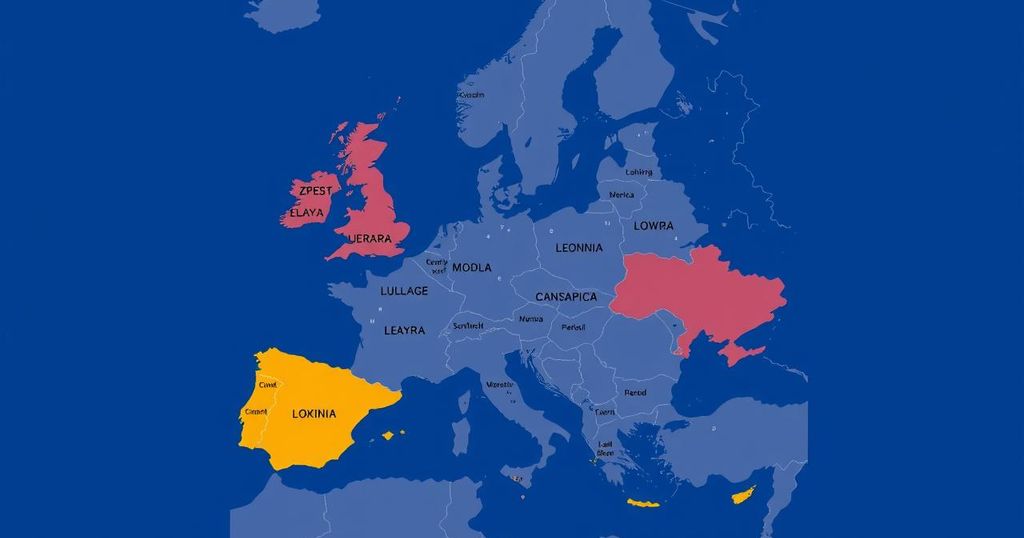The EU is accused of indirect involvement in forced deportations from Türkiye, with significant funds supporting abusive detention systems. President Ursula von der Leyen has suggested creating ‘return hubs’ amid migration challenges, while critical NGO reports highlight Tunisia’s unsuitability for disembarking rescued individuals. Concurrently, over 310,000 people have fled Lebanon into Syria following recent conflicts, facing additional hardships along the way.
Recent investigations indicate that the European Union (EU) may be indirectly participating in the forced deportation of individuals from Türkiye to Syria and Afghanistan. This finding is part of a report published by Lighthouse Reports in conjunction with multiple significant news organizations, which asserts that the EU has allocated substantial financial resources to a complicated deportation apparatus operating beyond its own borders. Testimonies from former detainees highlight severe human rights abuses within EU-funded detention facilities, where individuals are subjected to torture and coercion into signing deportation documents. In response to migration challenges, European Commission President Ursula von der Leyen has proposed the establishment of “return hubs” outside the EU as part of the upcoming European Council discussions. A leaked Council document indicates a lack of engagement from Egypt and Tunisia in migration negotiations, whereas Libya is reportedly taking a more positive approach. Moreover, concerns are mounting among over sixty non-governmental organizations (NGOs) regarding the safety of Tunisia as a host for disembarkation of rescued individuals from the Mediterranean. The situation in Lebanon has escalated dramatically, with approximately 310,000 individuals—primarily from Syria—fleeing into Syria following recent conflicts. Testimonies from displaced persons reveal the harrowing conditions they face during their journey, including extortion at military checkpoints. Overall, the EU faces mounting criticism for its overseas cooperation strategies in migration management, with advocates emphasizing the necessity of upholding human rights and providing protection for individuals fleeing conflict and persecution.
The EU’s external partnerships regarding migration control are under scrutiny following revelations of potential complicity in human rights abuses. The issue surfaced when an investigative report linked substantial EU funding to deportations undertaken from Türkiye. The European Commission is thus confronted with numerous challenges, including diplomatic relations with third countries like Egypt, Tunisia, and Libya, in response to the ongoing migration crisis influenced by geopolitical conflicts, notably in the Middle East. As the situation grows dire with mass displacements in neighboring countries, the adequacy of EU policies and the ethical implications of its partnerships comes into question.
The investigation into EU-funded deportations has raised pressing ethical questions regarding the Union’s migration policies and partnerships. With reported human rights abuses within detention facilities and the recent influx of refugees from Lebanon, the EU’s role in these scenarios further complicates the migration dialogue. Moving forward, there is a clear imperative for EU leaders to reassess their strategies to ensure the protection of vulnerable populations amidst ongoing geopolitical unrest.
Original Source: ecre.org







